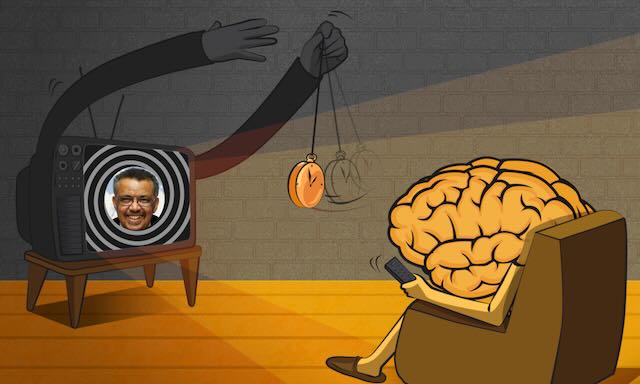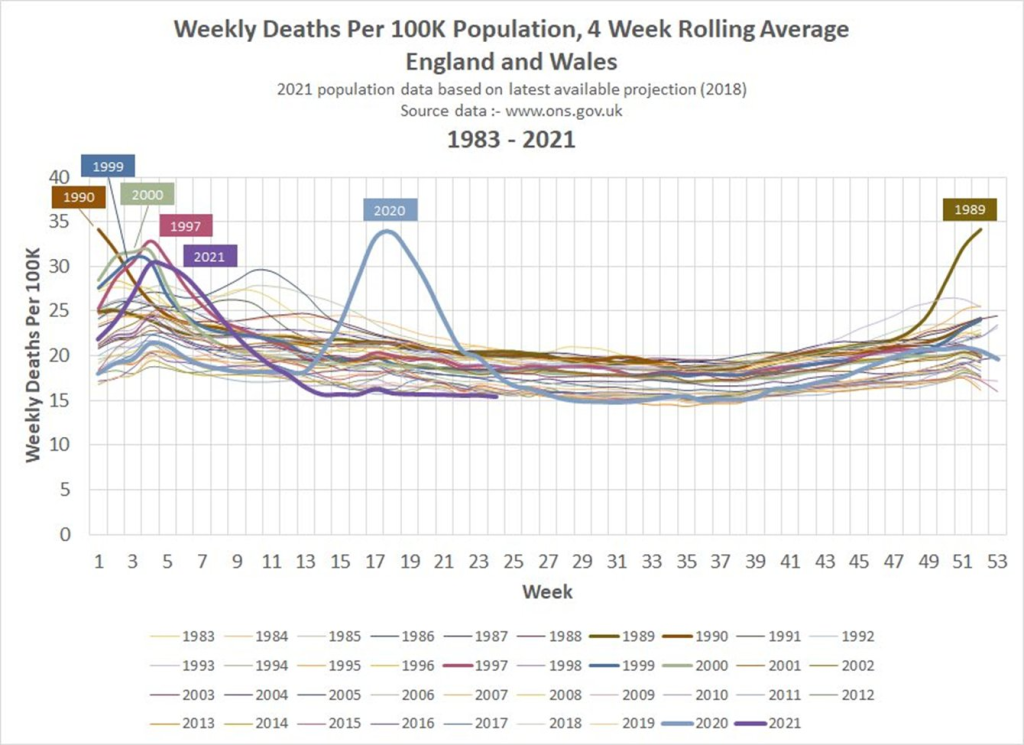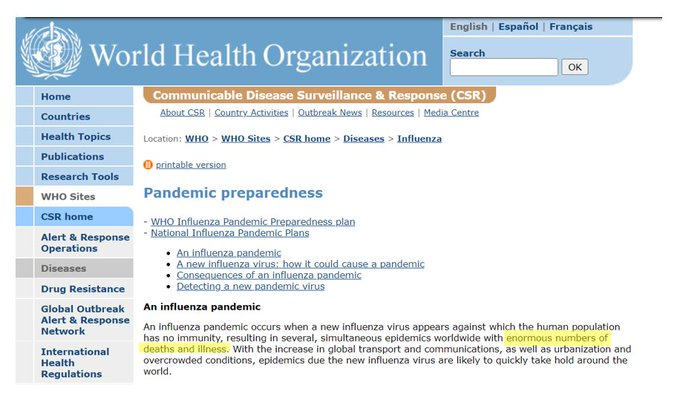
Tedros declares covid emergency over
The recent announcement by Tedros Adhanom Ghebreyesus, the Director-General of the World Health Organization (WHO), declaring the covid emergency over, highlights the absurdity of bureaucratic regimes dictating when we should be scared or not scared of an endemic virus. Included in the announcement he said the emergency was over but “this virus is here to stay.” He said “I declare COVID-19 over as a global health emergency” “however, that does not mean covid-19 is over as a global health threat.” He finished, “If we all go back to the way things were before covid-19 we will have failed to learn our lessons.” Given the the World Health Organisation (WHO) is proposing the adoption of a ‘Pandemic Treaty’, or ‘Pandemic Accord’ this statement is very concerning indeed.
How can we allow a handful of people to make such monumental decisions about our health and wellbeing, with no democratic oversight? The answer is simple – we can’t. It doesn’t take a genius to work out how easily corrupted this system is. All you would need to do is place a controllable stooge at the helm. And we have to question what the motivations of Tedros are and why he is there.
The Public Health Emergency of International Concern or PHEIC (pronounced ‘fake’) was declared on 30th January 2020. Such a declaration is for “an extraordinary event which is determined to constitute a public health risk to other States through the international spread of disease and to potentially require a coordinated international response.” Countries have a legal duty to respond quickly. For the declaration of a pandemic on the other hand there is no agreed process or criteria for declaring one or indeed declaring it over.
Tedros declared a covid pandemic on 11th March 2020 indicating a greater threat than the PHEIC that had already been declared. It therefore might have been expected that the “pandemic” would be declared over at the same time as or even before the “PHEIC.” However, some are claiming we remain in a pandemic. For example, epidemiologist Salim Abdool Karim, the director of the Centre for the AIDS Programme of Research in South Africa, in Durban said “We are still very much in a pandemic, we are just in a different stage in which we are no longer seeing large numbers of deaths and pressure on hospitals.” Numerous other academics have chimed in saying that the pandemic is not over.
So what is a pandemic? By any definition a pandemic requires exponential spread. In its absence there is an endemic virus. The reverse is not true. Every virus that has periods of exponential spread is not automatically considered to be an epidemic or pandemic virus. For example, seasonal influenza virus shows exponential growth every autumna and winter but is considered an endemic virus.
The WHO’s definition of a pandemic has been a topic of discussion for many years. Prior to 2009, the WHO did not have a published definition of a pandemic. The meaning of the term could only be deduced from how it was used. Consequently Pandemic Plans prepared for up to half the population to be ill at the same time with up to 750,000 deaths within around 16 weeks. Pandemic plans were written about hypothetical situations in which the loss of life would be many times higher than in a seasonal influenza season. These plans were designed for implementation only when there was a catastrophic risk of societal disruption from illness with huge loss of life.

Figure 1: Deaths per 100,000 people showing that although the timing of the spring 2020 wave was unusual its magnitude compared to previous influenza seasons was not

Figure 2: WHO website pre 2009 including their informal definition of a pandemic including “enormous numbers of deaths and illness.”
However, in 2009, the WHO changed their website definition of a pandemic removing reference to “enormous numbers of deaths and illness” to enable them to announce the onset of the swine flu pandemic. Under the new definition, the presence of a novel virus was the only requirement for declaring a pandemic. Loss of life was no longer a feature. This new definition could be used to describe seasonal influenza every winter, which mutates and returns as a different, novel variant each year. In fact, under the new definition, we are still living through the 1918 influenza epidemic, as there remains global circulation of descendants of that virus.
This change in the definition of a pandemic has led to a marked mismatch between the potentially inconsequential viral spread that the WHO is prepared to describe as a pandemic and the pandemic plans, which were designed for implementation only when there was a catastrophic risk of societal disruption from illness with huge loss of life. There was an explicit assumption that the lives lost would include the young. Even with these expectations of huge loss of life, there was an understanding in pandemic plans that actions to limit the spread of an airborne respiratory virus would be largely futile.
The measure of significant virus was reduced from infectiousness to any virus detected, and the pandemic measure from being a threat to life to any outbreak that is not contained, regardless of how serious it is. This is an unacceptable approach to managing a pandemic.
It has already been abused. The emergency committee of the WHO voted 9-6 against declaring monkeypox a Public Health Emergency of International Concern but Tedros overruled them saying, “Nine and six are very, very close. Since the role of the committee is to advise, I then had to act as a tiebreaker”. The emergency committee are all selected by the director-general and the International Health Regulations only requires that their views are thought. The decisions rest entirely with that one person with no democratic oversight.
The definition of a PHEIC and a pandemic must be revised to take into account the actual severity of the outbreak and the potential loss of life. Pandemic plans designed for catastrophic events must not be triggered in the absence of catastrophe. After the harm we have seen from covid policy the bar must be set very high for what triggering any future response.
A single man declaring the covid PHEIC or pandemic over, highlights the absurdity of the current definition of both. We cannot allow powerful bureaucrats to make decisions that affect our lives so dramatically.
